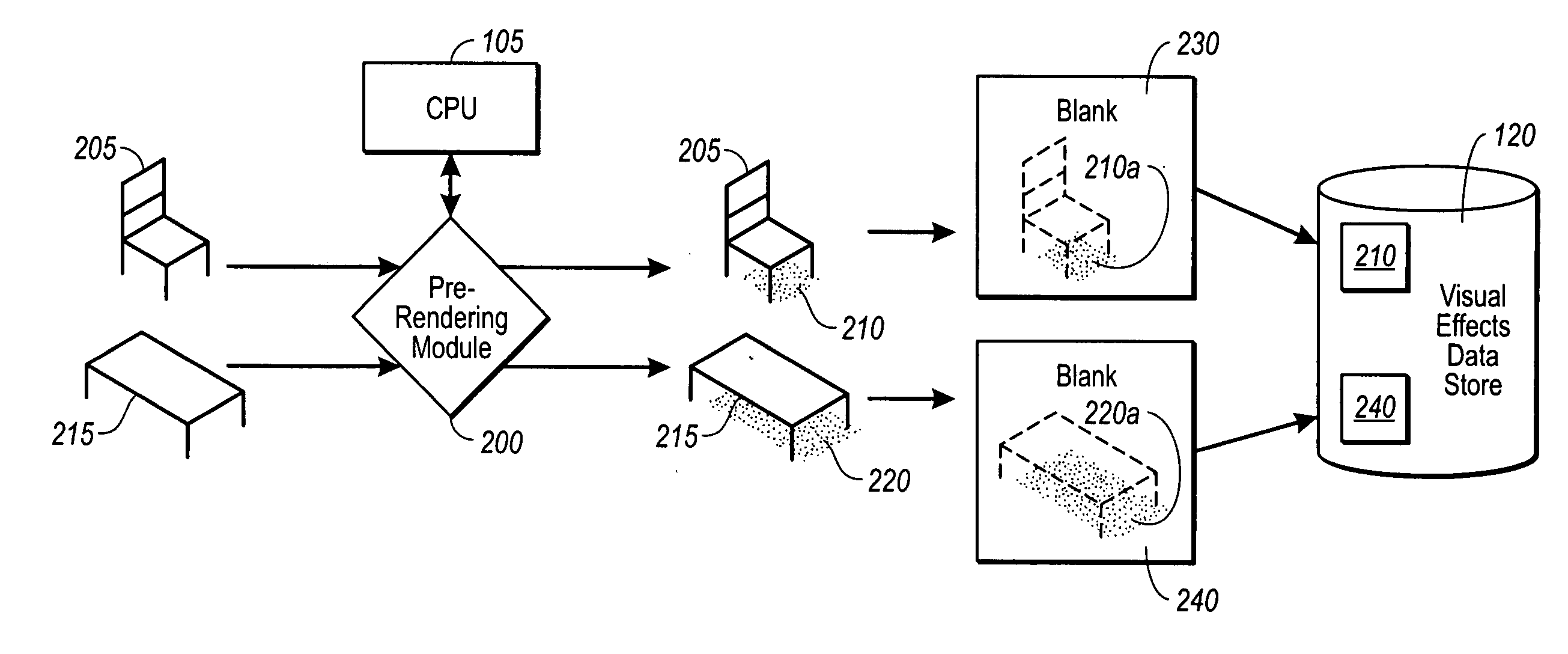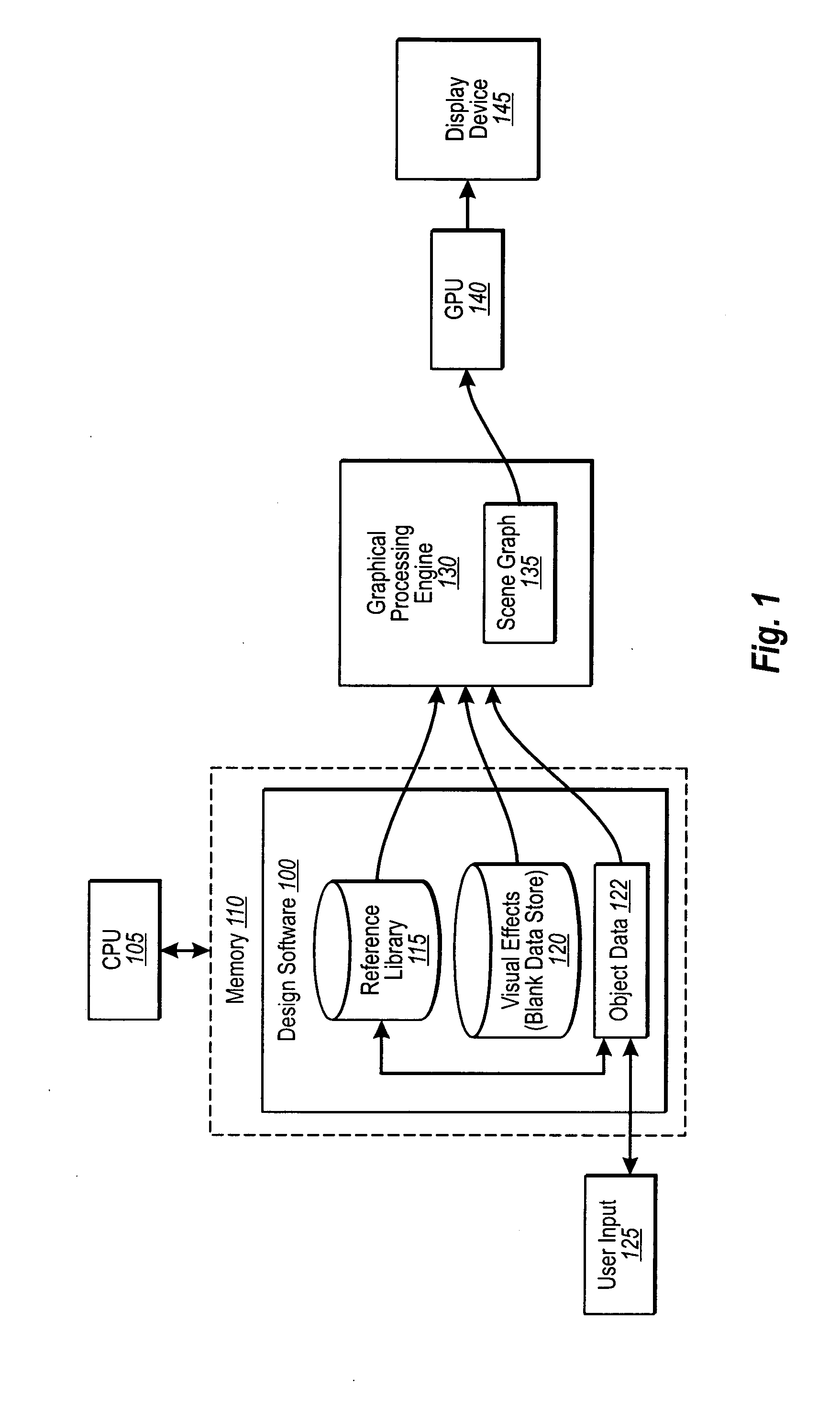Design software incorporating efficient 3-D rendering
a design software and efficient technology, applied in the field of system, method and computer program products for modeling, can solve the problems of inefficiency, design is physically impossible or impractical, roof or ceiling collapse, etc., and achieve accurate visual effect data, accurate and efficient rendering of three-dimensional views
- Summary
- Abstract
- Description
- Claims
- Application Information
AI Technical Summary
Benefits of technology
Problems solved by technology
Method used
Image
Examples
Embodiment Construction
[0026] The present invention extends to systems, methods, and computer program products configured to efficiently render the visual effects for a user's design choice in a two or three-dimensional view in real-time. In particular, implementations of the present invention relate in part to prerendering lighting, shading, shadowing, or other such visual effects through a conventional central processing unit, and then later processing these effects, along with any other relevant information about the user's design choice, at a graphical processing unit during run-time.
[0027] For example, as will be understood in greater detail in the following description and claims, at least one aspect of the invention relates to front-loading the processing of much of the rendering (i.e., “prerendering”) of certain visual effects, which, in some cases can be fairly time-intensive. In particular, rendering of certain types of visual effects can be done by a central processing unit (“CPU”) at a comput...
PUM
 Login to View More
Login to View More Abstract
Description
Claims
Application Information
 Login to View More
Login to View More - R&D
- Intellectual Property
- Life Sciences
- Materials
- Tech Scout
- Unparalleled Data Quality
- Higher Quality Content
- 60% Fewer Hallucinations
Browse by: Latest US Patents, China's latest patents, Technical Efficacy Thesaurus, Application Domain, Technology Topic, Popular Technical Reports.
© 2025 PatSnap. All rights reserved.Legal|Privacy policy|Modern Slavery Act Transparency Statement|Sitemap|About US| Contact US: help@patsnap.com



